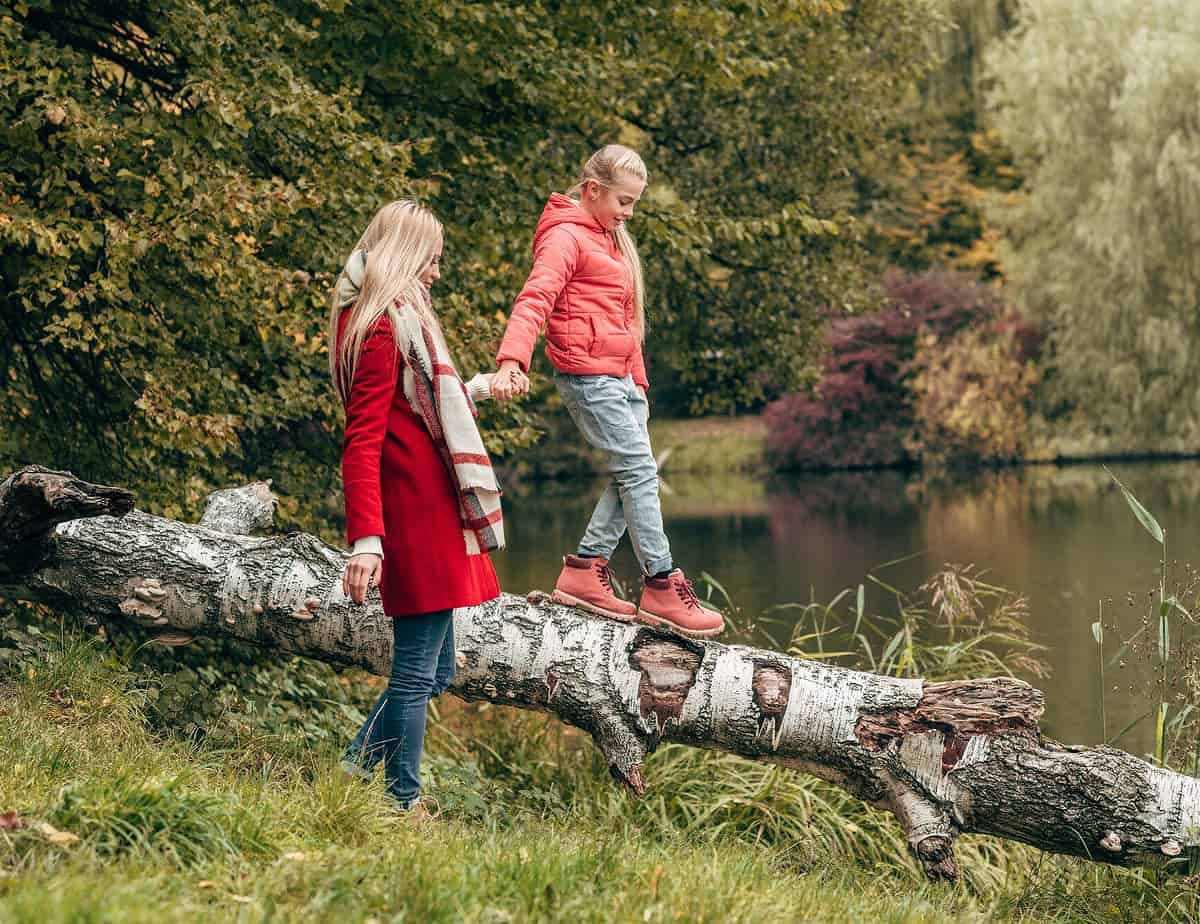If you have ever been feeling down or depressed, going for a walk may have helped.
For me, a walk in nature does wonders to improve my mood. A good walk can even feel like my reset button has been activated, pulling me out of a slump.
So, exactly why does being outside make you happy?
Many theories exist as to why being outside is beneficial for mood and can be grouped into three main ideas: exercise, sunlight, and mindfulness. The overall theme is that being outside is an essential thing for our bodies and mind.
1. Exercise
Our bodies have many moving parts that need to be utilized for them to work efficiently.
The heart and lungs provide energy, oxygen, and blood flow to keep the moving parts available to you to do work and enjoy activities. However, the heart and lungs need our help in moving the pieces. Without using them, our body becomes less efficient at keeping itself going. By exercising regularly, we can change how the body looks after itself.
Each cell in our body contains mitochondrion—this is the powerhouse of a cell. When we exercise frequently, cells produce more protein for the mitochondria. Mitochondria reduce cell ageing, as the cells have enough resources to rebuild itself and work efficiently.
Often when we are depressed or have anxiety, we feel uncomfortable in our bodies.
With regular exercise, our body will become more efficient and feel less stressed. When our body is less stressed and working optimally, we will naturally feel more relaxed, even without trying. Click this link to read more on how exercise helps with anxiety and depression
Being outside is great for everyone, but how does being outside help with specific mental health conditions.
2. Sunlight
Vitamin D
Vitamin D is a chemical that our skin produces in response to sunlight. When triggered by sunlight, our skin’s enzymes have a protein that converts the UV from the sun into Vitamin D3. The liver then processes this into Vitamin D to benefit the body.
Vitamin D helps the body to regulate many processes. Among other benefits, vitamin D helps with bone health and immune system strengthening. Most importantly, however, Vitamin D has been proven to reduce symptoms of depression or low mood.
In the article Vitamin D and Depression: Where is all the Sunshine? discusses the correlation between Vitamin D and depression. Going outside and getting vitamin D is a great way to improve your body’s processes. Our body is designed to produce Vitamin D to help us, and getting it naturally is one reason why being outside makes us happy.
Oxygen
Being outside is a great way to get more oxygen into our lungs. As we breathe in deeply, our lungs expand and take in more air, which our heart and brain utilize. In turn, the heart can provide more energy to our blood cells, nurturing all organs, muscles, and body functions.
Oxygen is a chemical our body uses to burn fuel and create energy. This energy is essential in feeling motivated and not lazy. Even a short time spent outside will increase oxygen levels in the blood. The body then can better respond to any issue so that we may function wholly. Our body will feel less stressed and more in tune with itself.
3. Mindfulness
When our minds race and we cannot quiet it down, being outside will make this far more manageable. As walking involves many different parts of the brain, our attention will be somewhat distracted, so we are not overwhelmed by the internal racing.
Just like meditation, walking outside or forest bathing, is a great way to not ruminate over distressing thoughts. Likewise, walking in nature, such as through a park or in woodland, can calm you.
These areas are typically quieter than walking in a city, and the sounds of nature will soothe and be less taxing on our psyche.
Benefits Of Being Outside
Post-traumatic Stress Disorder = PTSD
Post-traumatic stress disorder occurs due to a traumatic event. Disturbing thoughts that can change how new stimuli is processed. Being outside in nature can help PTSD by creating new connections through mindfulness.
Mindfulness can reduce gray matter in a brain region known as the amygdala—this part of the brain regulates stress. When one has PTSD an overactive, or misfiring amygdala occurs, meaning the perception of threats is much higher.
To calm the brain’s amygdala region, the practice of mindfulness and being outside can be beneficial. With some effort and professional help, practicing mindfulness while out in nature may help reduce symptoms of PTSD.
Depression
Depression is an issue causing one’s mood to become low. Getting into a routine can be an excellent way to get out of depression, as setting achievable goals gives us a sense of purpose.
Getting outside daily and taking in a deep breath is a great beginning to change where we are. When depressed, just going outside each day may require a Herculean effort. If we can take this step, we can begin to connect with the outside world and nature and, in turn, help ourselves and connect with ourselves.
Anxiety
Feelings of excessive worry or stress characterize anxiety. All thoughts come and go multiple times a minute. Then there are times when all of those thoughts ball up inside.
Going outside, taking in a deep breath and sitting, walking, or standing can often begin unravelling the ball of thoughts. Distracting ourselves with a new environment like our backyard, so we are not overwhelmed, will cause us to think different thoughts and help us.
Taking a deep breath to stretch our lungs provides oxygen to the body, allowing us to calm. You might even venture and take a relaxing walk away from your problems, giving you the confidence to tackle them later.
Aloneness
When we are not feeling well physically, mentally or spiritually, we sometimes don’t want to be around others yet want to be around others but know that we don’t have the energy to do so.
Or there may be times when we can be in a room full of people yet feel alone.
If feeling alone, this is a time when being outside will make us happy. We can leave the confines of the place we are in and venture forth to see the world around us, hear the sounds of nature, smell the scent of flowers, and connect with the world around us.
Acceptance of who we are, where we are, and what we are feeling is a given. I have never seen a flower or the colour of the sky reject anyone. We can leave when we want, and no one will question that decision.
Our feelings of aloneness will dissipate, and we feel happier as we connect to the world. The sense may be subtle in the beginning and, over time, may grow. Going for a short brisk walk will give us a renewed sense of purpose and a boost in mood to go along with it.
Final Thoughts
There’s something about being in nature that just makes us feel good. Maybe it’s the fresh air, or the sound of the leaves rustling in the wind. Whatever it is, being outside has been shown to have a whole host of benefits for our mental and physical health.






